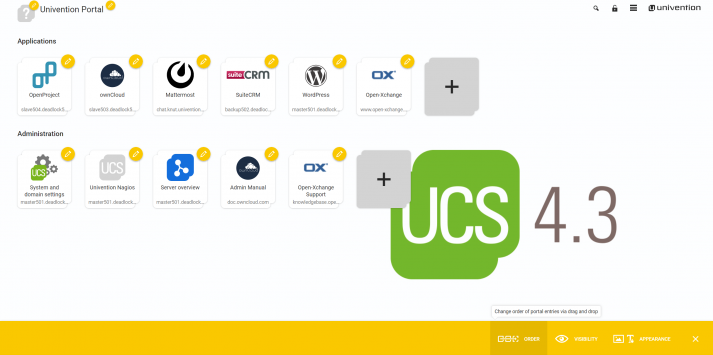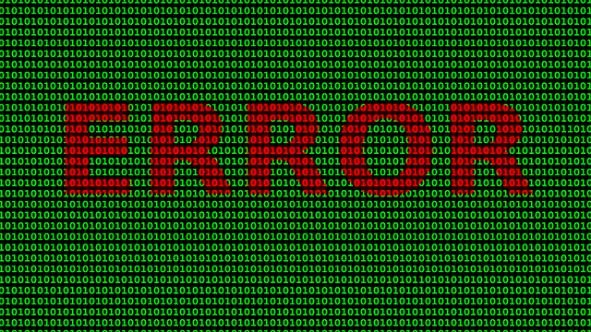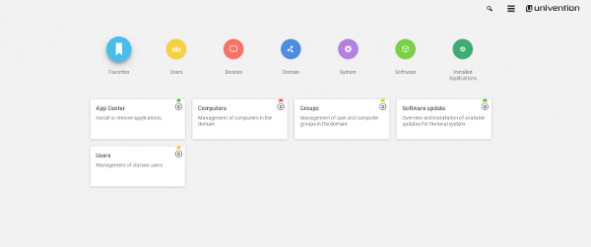From our Development
Release UCS 4.3: Easy administration of portal pages, higher performance and single sign-on for apps

With UCS 4.3 we have integrated numerous security updates – most recently the Samba 4 update of March 13 – and closed hundreds of bugs. But not only, we also focused, among other things, on a significantly higher performance during data import and more convenience in the administration of portal pages or users, for example. […]
Critical Security Update for Samba Published

The Samba team discovered a critical vulnerablity in the access control of Samba/AD domain controllers. Any authenticated user can change other users’ passwords over LDAP including the passwords of the administrators. We strongly advise to install the updated Samba packages for all UCS versions currently supported (from UCS 4.1-5 and UCS 4.2-3) which we have […]
Brief Introduction: How Can UCS Systems Be Updated Automatically?

Like any operating system manufacturer, Univention usually publishes weekly updates. As an administrator, you want to install them as soon as possible. However, in large UCS environments with many connected servers, manual updates can take a lot of time, which is not always available every week. The easiest way to reduce such a big workload […]
Module System Diagnostic: Your Problem-Solving Assistant in UCS

With the UCS module System Diagnostic you can easily analyze the system for existing or potential problems in your UCS instances. Initially, the module contained six different verification options. Today, there are already 54 available to help you ensure the smooth operation of your IT system by identifying disruptions and providing corrective solutions. Below we […]
Errata Updates for Spectre and Meltdown Problems

Developers at Google have discovered a problem with processors of several different CPU vendors, which can be exploited by software. Due to these security vulnerabilities, unauthorized users may gain access to supposedly protected memory areas. These problems, known as “Spectre” and “Meltdown”, are specified by the CVE (Common Vulnerability and Exposures) numbers: CVE-2017-5753, CVE-2017-5715 and […]
Univention Corporate Server 4.2-2 released

One of the highlights of the second point release of Univention Corporate Server (UCS) are the significant enhancements UCS 4.2-2 offers for managing services and apps that are hosted in public cloud services such as the Amazon Marketplace. Services installed on UCS can now be accessed directly without any further configuration effort. Our development department […]
UCS Identity Management Manages Mail Platform With Over 30 Million Users

More than two years after the start of one of the largest projects in which Univention has been involved to date, a new mail platform with over 30 million managed end users finally went online in late 2016. UCS takes care of the identity management duties for all the user accounts. I first reported on […]
First point release of UCS 4.2 published

With UCS 4.2-1 the first point release for Univention Corporate Server 4.2 is now available. It includes various detail improvements and error corrections. Some of the most important changes are: The forwarding of e-mails per each mail user can now be saved in the UCS management system. Improvements in changing the password in the Univention […]
Facilitate Your Work by Integrating Listener Modules in UCS

Listener modules support you in your administrative work by synchronizing and controlling all changes in the UCS’ OpenLDAP Einacross all connected services – Learn how to build and use them! You are surely using a variety of (cloud) services in your organization and, if required, these services will make changes to your directory service, either Active Directory […]
Univention Corporate Server 4.2 Released: Improved Operating Concept and lots of New Technology under the Hood

The most striking new feature of the Univention Corporate Server 4.2 release is the significantly further developed operating concept for all users – not only for the administrators, but also for the end users. In addition to new features such as the online portal, this is due to the smoother interface, faster ways to overview […]